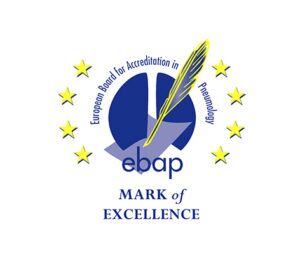Overview
Sleep-disordered breathing (SDB) in children is a significant health concern that warrants increased focus from both the scientific and medical communities. This research seminar aims to unite experts and researchers from diverse fields to foster collaboration and explore innovative approaches to understanding, diagnosing, and managing SDB in children. The seminar is driven by several key reasons:
- Prevalence and underdiagnosis: Conditions such as obstructive sleep apnoea (OSA) are prevalent among children but often go underdiagnosed, leading to untreated health risks. Understanding the prevalence and identifying effective diagnostic methods are crucial for early intervention.
- Neurocognitive and behavioral consequences: SDB is linked to various neurocognitive and behavioral issues, such as poor academic performance, attention deficits, and emotional disturbances. However, the correlation between SDB severity and neurocognitive deficits is not straightforward. For instance, primary snoring is also associated with neurocognitive morbidity. This seminar aims to illuminate these links for better assessment and treatment approaches.
- Physical health implications: Untreated SDB in children is associated with multiple health problems, including cardiovascular issues, growth retardation, and metabolic disturbances. Addressing these concerns can contribute to improved overall health outcomes.
- Multidisciplinary approach: Addressing SDB in children requires input from various fields, including paediatric pulmonology, sleep medicine, otolaryngology, and psychology. Collaboration is essential to develop a holistic understanding and treatment strategies.
- Technological advancements: Recent technological advancements have enabled more accurate monitoring and diagnosis of SDB. Discussing these innovations can open new avenues for research and intervention.
- Therapeutic advancements: Novel therapeutic interventions, such as surgical techniques and non-invasive treatments, have emerged. Sharing these innovations can provide attendees with the latest information.
- Research Collaboration: Bringing together experts and researchers promotes collaborative research efforts, leading to a deeper understanding of SDB in children and the development of more effective interventions.
This seminar is timely and crucial for advancing paediatric sleep medicine. By fostering collaboration, sharing knowledge, and exploring the latest developments, we can improve the diagnosis, management, and outcomes for children with SDB, ultimately enhancing their overall health and quality of life.
Objectives
The objectives of this research seminar are to foster a deeper understanding of various aspects related to paediatric obstructive sleep apnoea (OSA), from diagnosis to innovative treatments. The aims are grouped into the following themes:
Diagnosis of obstructive sleep apnoea
- Explore the role of normative oximetry, polygraphy (PG), and polysomnography (PSG) data in infants and children and identify gaps in current knowledge.
- Evaluate alternative diagnostic methods for OSA in children, such as oximetry and home testing, and discuss their utility and potential improvements.
- Move beyond the Apnea-Hypopnea Index (AHI) and examine ways to enhance the quality of polysomnography while predicting morbidity associated with paediatric OSA.
- Investigate the application of artificial intelligence in paediatric sleep and breathing studies, considering its potential for future diagnostics and treatment.
Etiology of obstructive sleep apnoea
- Discuss the evolving role of sleep endoscopy and CT/MRI imaging in diagnosing and managing children with sleep apnoea and understand its impact on clinical practice.
- Examine the necessity of drug-induced sleep endoscopy (DISE) to guide continuous positive airway pressure (CPAP) settings for paediatric OSA treatment.
- Investigate the potential contribution of control of breathing in paediatric OSA and its impact on the development and management of the condition.
- Delve into the unique challenges presented by OSA in special populations of children and identify areas where research is lacking.
Complications of obstructive sleep apnoea
- Explore the connection between primary snoring and neurocognitive complications in children with OSA, shedding light on potential clinical implications.
- Investigate the role of animal models in understanding and treating paediatric OSA, bridging the gap between bench research and clinical practice.
- Assess the impact of obesity on OSA in children and its associated cardiovascular complications, particularly within the context of a growing global health concern.
- Examine the relationship between the gut microbiome and paediatric OSA, providing insights into potential therapeutic interventions.
Innovative treatments of obstructive sleep apnoea
- Address the challenges posed by drug-induced sleep endoscopy (DISE) in paediatric OSA, including the development of scoring systems, surgical outcomes, and the clinical evolution of DISE-guided treatment.
- Investigate the feasibility of utilising functional respiratory imaging and 3-D reconstructions in the surgical management of children with OSA, assessing its potential integration into clinical practice.
- Explore treatments aimed at improving ventilatory instability in children with OSA and determine their role in future therapeutic strategies.
- Discuss the potential of high flow nasal cannula as an alternative to CPAP for children with OSA, exploring its efficacy and clinical applications.
- Evaluate the use of CPAP with built-in software for monitoring children with OSA, assessing the potential benefits and drawbacks compared to traditional medical oversight.
These objectives are designed to stimulate discussion, collaboration, and knowledge sharing among experts in paediatric sleep medicine, ultimately advancing our understanding of diagnosis and treatment strategies for obstructive sleep apnea in infants and children. These discussions will be supported by original research sessions where participants can present their research through posters and oral presentations.
This research seminar will take place in Berlin, Germany.
The venue for the meeting is:
H4 Hotel
Karl-Liebknecht-Str. 32
10178 Berlin, Germany
This research seminar is granted with 8 CME credits by the European Board for Accreditation in Pneumology (EBAP).
The number of credits that you will receive corresponds to your attendance during the event. Please note that you need to sign the register of attendance each day to ensure that you receive the correct amount of CME credits.

Registering for someone else? Contact registration@ersnet.org




